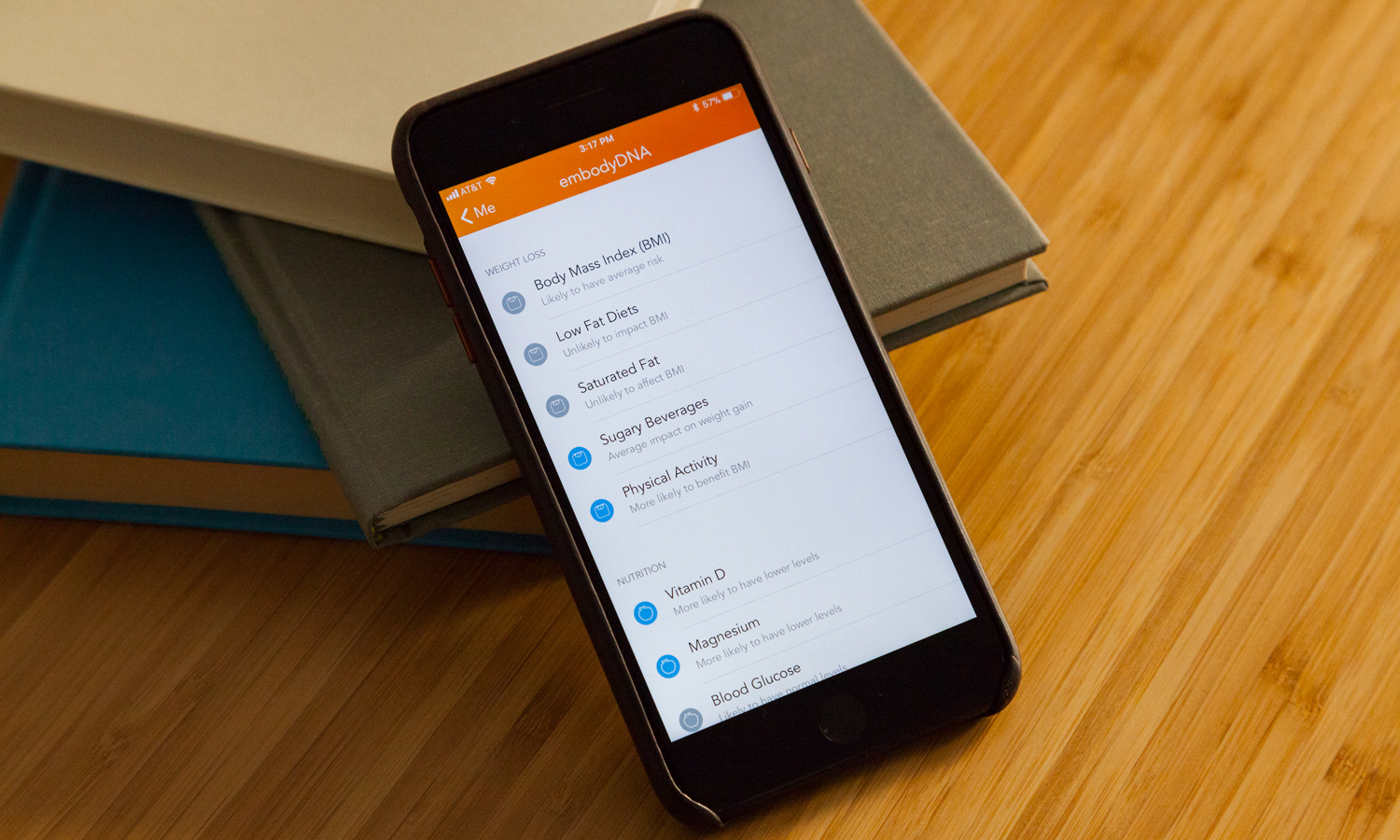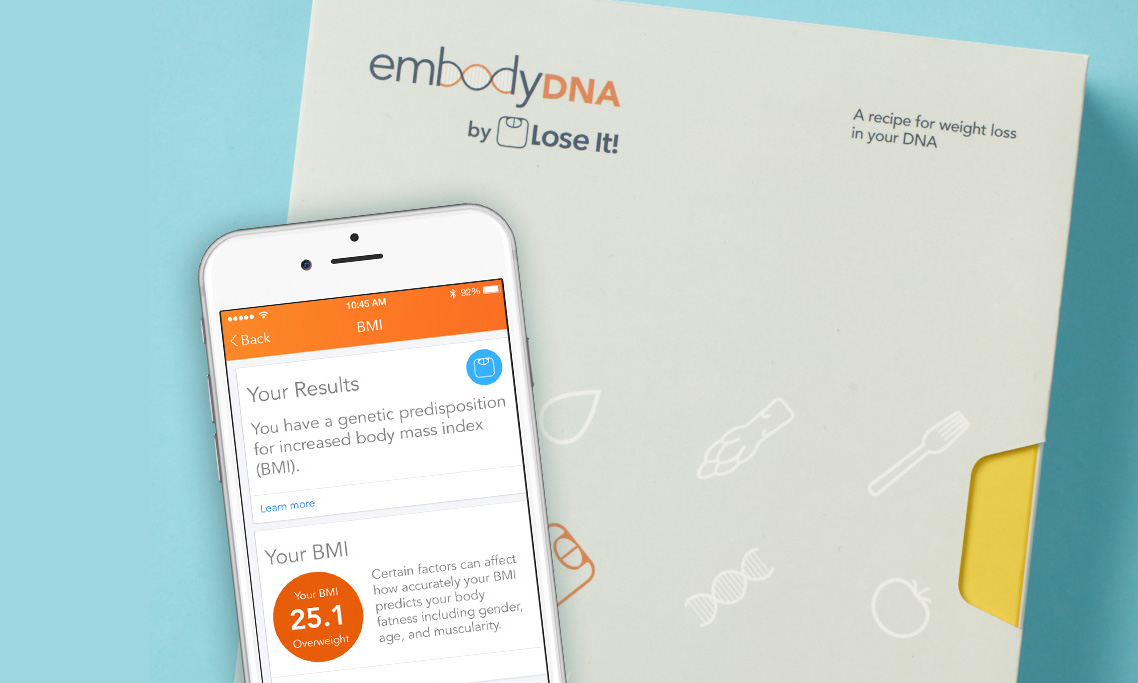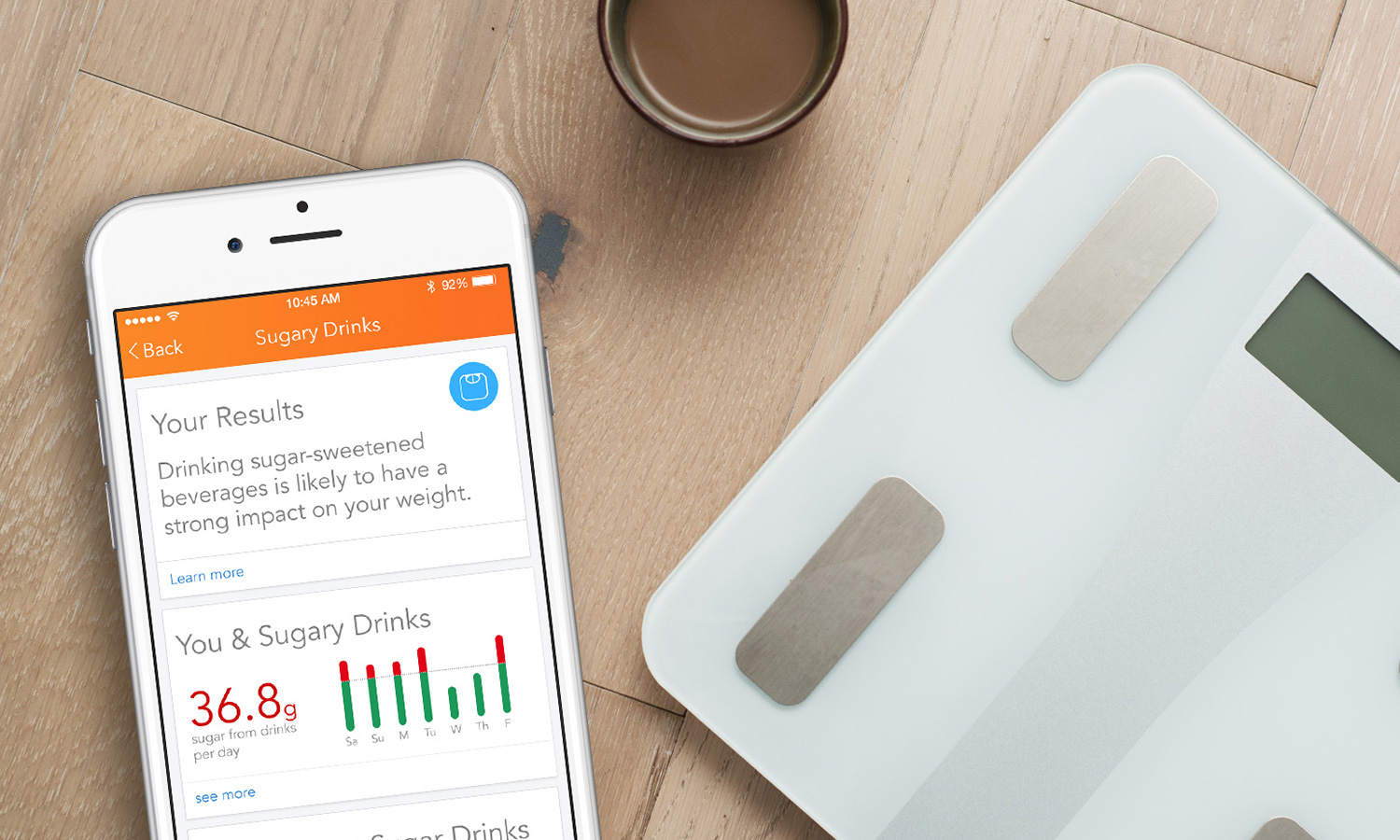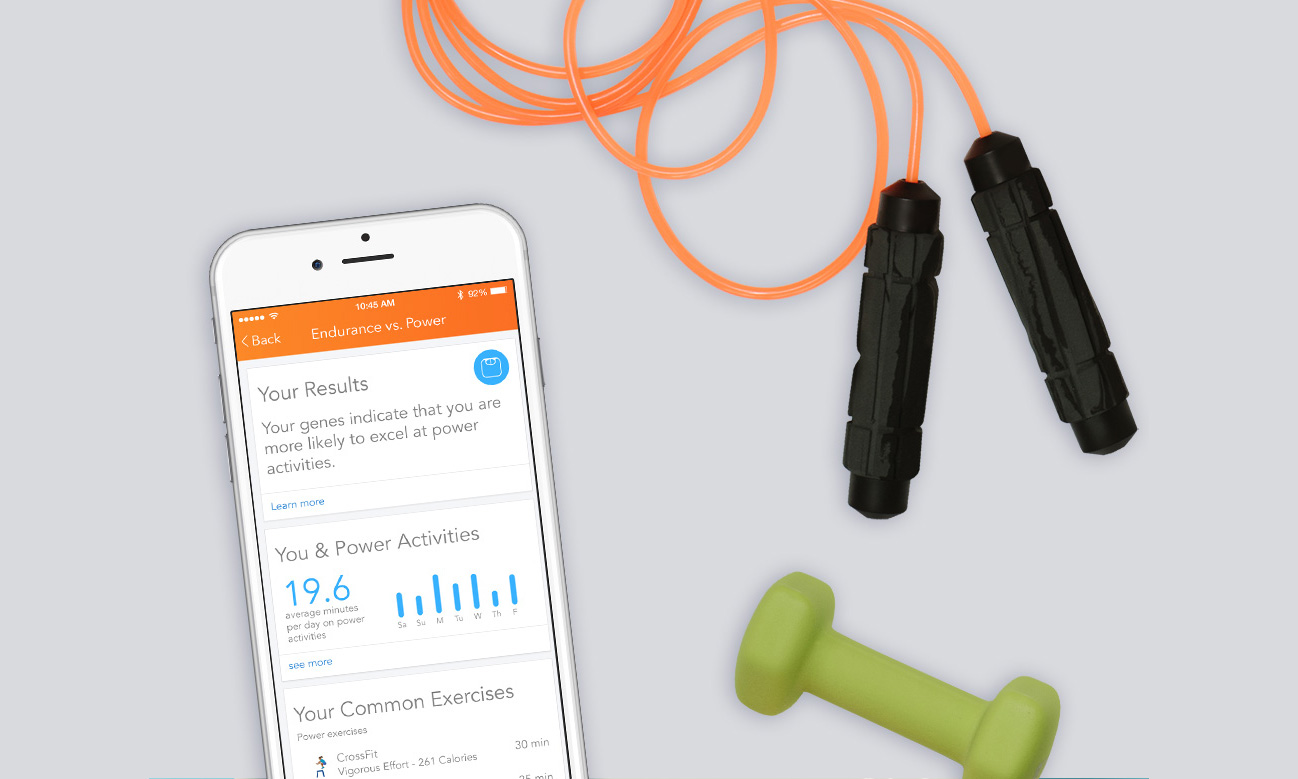I Took a DNA Test to Shape Up, But It Didn't Work Out
Lose It promises to to help you eat and exercise better based on an analysis of your DNA, but right now, the app's advice is too generic for the steep cost.
DNA tests are having a moment. Need a gift idea? Your loved ones will surely appreciate a kit from 23andMe or AncestryDNA. You can find out where your family is from or what diseases you're genetically predisposed to. Who doesn’t love that information?

And now an established weight-loss app called Lose It is using DNA analysis to help you figure out what to eat and how to exercise according to the traits you've inherited. A personalized meal plan and workout routine designed around my genetic makeup? Sure, it's $200, but sign me up.
I spit into a tube, packaged it up and dropped my box of saliva in the mail.
Editor's note (Nov. 30, 2017): Lose It has discounted the Helix sequencing and EmbodyDNA analysis bundle to $19.99 total, down from $189.99. This is a holiday promotion and the price will return to normal next week.
How It Works
Lose It is working with Helix, a DNA-sequencing company. After you pay $80 for the initial test, you can buy products, through Helix's marketplace, that use the company's sequencing to tell you about your ancestry, give you fitness recommendations and more.
Think of Helix like an app store — a really expensive app store. Lose It's EmbodyDNA analysis costs $110. (Lose It’s holiday promotion has reduced the price to $19.99 for both the EmbodyDNA analysis and the Helix sequencing.)

Other Helix-based DNA analysis products are even pricier: EverlyWell’s Metabolism+DNA software is $150, and Sema4's CarrierCheck is $200. That test screens your genes for markers of inherited diseases that you might pass on to your children; it requires physician approval to use, so it might be worth the cost.
When I returned from a vacation in Greece with a few extra pounds thanks to 10 days of nothing but souvlaki, tzatziki and white wine, I was looking forward to seeing my results.
Two-hundred dollars is a lot of money to spend on insights that don't feel very insightful.
About five weeks after I sent Helix my sample, the company emailed me to say my DNA sequencing was complete. I opened the Lose It app, toggled over to Insights, tapped on EmbodyDNA and then waited for the app to analyze the data it had imported from Helix. (I linked the two accounts when I ordered the test, which is how Lose It had access to my DNA results.)
The results largely confirmed information I already knew about myself: My BMI (body mass index) is lower when I exercise. I am genetically predisposed to lower levels of vitamin D and B, and I metabolize caffeine so slowly that one cup of coffee a day is all I can stand.
According to EmbodyDNA's analysis, specialty diets that are low in fat or high in saturated fat have little impact on my BMI, and I excel at "mixed activities" that combine endurance and power when it comes to workouts (though I’m still not sure what that means).
An App Is Not a Doctor
Lose It's EmbodyDNA feature didn't create a meal plan to help me lose my vacation pounds. It didn't recommend specific fitness routines either. Two-hundred dollars is a lot of money to spend on insights that don't feel very insightful.
"When people are just beginning their weight-loss journey, this could be helpful," said Erin Webster, Lose It's marketing director. "It gives them guidance to where they can go next. There are people using Lose It who are just plateauing. The way we look at things is the more information we can give someone that's specific to them, the more successful they'll be. We try to give people insights that they wouldn't normally have access to."

Discovering my genetic predisposition to lower vitamin levels was interesting, but I already knew my exact counts from lab results after my annual physical. My vitamin D level is fine, but I do have to take a vitamin B supplement. That's information you can get only from a doctor, not an app.
"We want to give people access to genetic information [in] real time inside the food-tracking experience." — Kevin McCoy, senior VP, Lose It
Learning this genetic information could encourage Lose It users to seek out medical advice. That's the early feedback the app has been getting from the first wave of EmbodyDNA participants, said Kevin McCoy, Lose It's senior vice president of business development. But because the DNA-based insights launched over the summer and results can take up to eight weeks to arrive, that feedback is just now trickling in.
McCoy stressed that this is the first version of the EmbodyDNA feature and that more detailed and personalized information from your DNA analysis is coming to the app.
"We could probably do a better job of telling you your success at weight-loss management and telling you specific exercises to do each week," McCoy said. "We want to give people access to genetic information [in] real time inside the food-tracking experience."
Right now, Lose It recommends foods you can eat and workouts you can do, but those recommendations are pretty basic and not tailored to your life or weight-loss goals. Low in vitamin D? Here are foods that have vitamin D in them. Drink more water, eat dark leafy greens and get some exercise five a days a week. The types of workouts that work for me (and approximately 48 percent of the world's population, according to Lose It) are circuit training and running. Sounds like common sense, right? Got it.
Sequencing the Future
But if you're genetically predisposed to obesity, generic advice like that may not work for you. A variation on the ankyrin-B gene can make it so that two people can eat the same food and exercise the same amount, but the individual with that variation will gain weight while the other person remains slim.

Duke University biochemist Vann Bennett, who has studied the effects of that gene variant in mice, said getting your genetic information earlier in life, when you can take meaningful action, would be useful. Knowing your predisposition to obesity and obesity-related diseases when you can do something about them could make a huge difference, he said.
"An ounce of prevention is worth a pound of cure," Bennett said.
Bennett said he wouldn't "rush out right away" to get your DNA sequenced and your results analyzed by an app like Lose It. After all, it's still prohibitively expensive for many people, and the apps "will be getting more and more precise" over time, he said.
DNA-based diet and workout advice isn't worth $200 — not yet. But one day, in the not-too-distant future, an app — maybe Lose It or something like it — could give you a detailed daily meal plan and workout routine to avoid preventable diseases and reach your health goals. That would be advice worth paying for.
Sign up to get the BEST of Tom's Guide direct to your inbox.
Get instant access to breaking news, the hottest reviews, great deals and helpful tips.
Caitlin is a Senior editor for Gizmodo. She has also worked on Tom's Guide, Macworld, PCWorld and the Las Vegas Review-Journal. When she's not testing out the latest devices, you can find her running around the streets of Los Angeles, putting in morning miles or searching for the best tacos.
